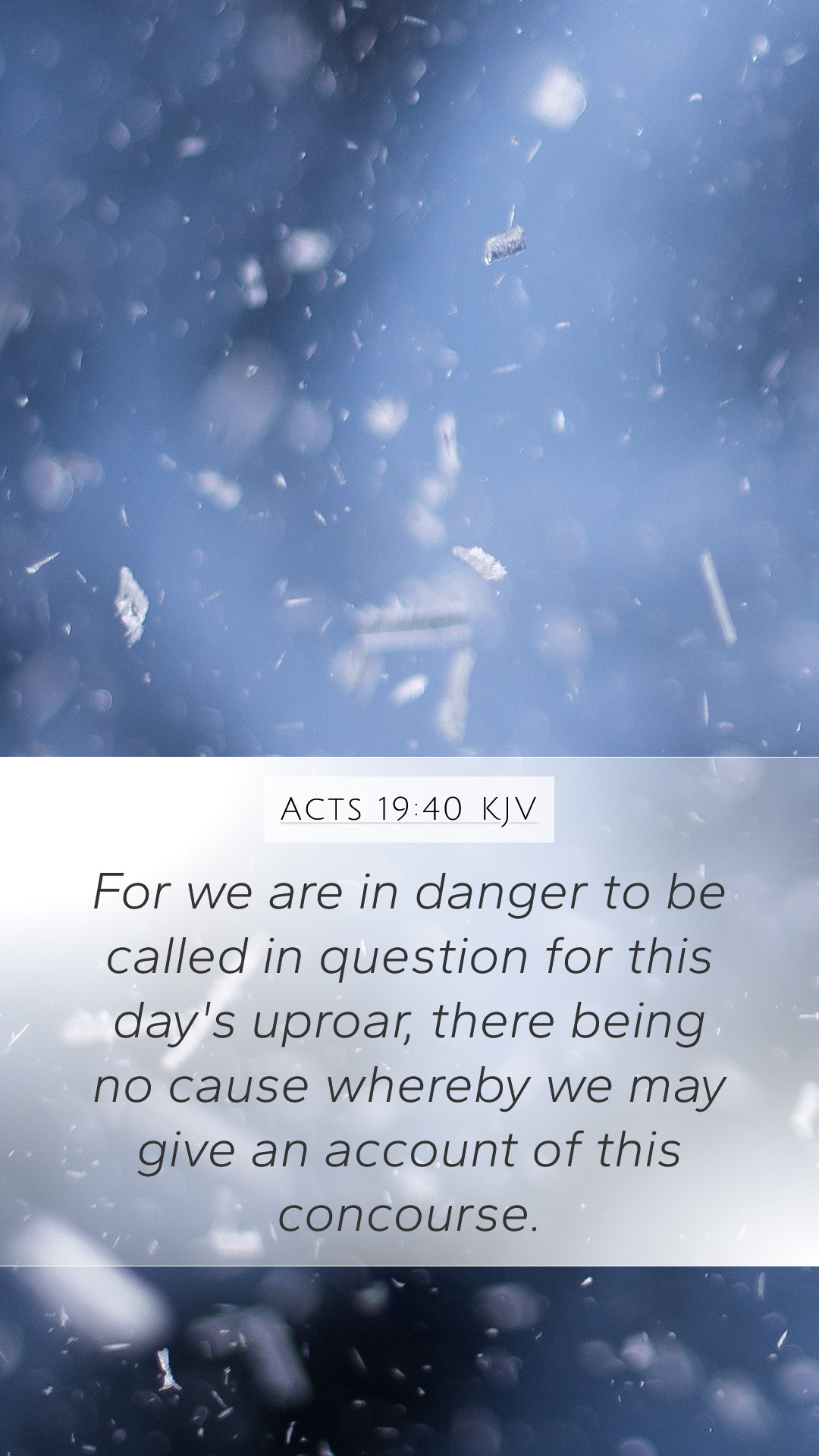Understanding Acts 19:40
Acts 19:40 states: "For we are in danger to be called in question for this day's uproar, there being no cause whereby we may give an account of this concourse."
This verse is situated within the context of a tumultuous event in Ephesus, where the Apostle Paul’s teaching led to significant unrest among the silversmiths who profited from the worship of the goddess Diana. The city faced potential political ramifications due to the unrest.
Bible Verse Meanings and Interpretations
The verse encapsulates the fear and urgency of the city officials, emphasizing the potential consequences of the riot instigated by rivalries and economic concerns. Here’s a detailed breakdown:
-
Historical Context:
Understanding the socio-political climate of Ephesus during this time is critical. The city was known for its idol worship, particularly of Diana. The rebellion against Paul's teachings highlighted a clash between emerging Christianity and established pagan traditions.
-
Political Implications:
The phrase "in danger to be called in question" suggests that the officials were worried about Roman authority's response to the chaos. They were at risk of being viewed as incapable of maintaining peace.
-
Religious Conflict:
The uproar not only indicates a civil disturbance but underscores the tension between pagan worship and the growing Christian faith, elevating the stakes for both sides engaged in this conflict.
Bible Commentary Insights
Drawing insights from public domain commentaries, we can understand this verse comprehensively.
Matthew Henry's Commentary
Henry emphasizes the lack of a substantial cause behind the uproar, highlighting that the uproar was more a reaction to economic fear than a justification for violence. He posits that the officials were concerned about public order and their own accountability before Roman authorities.
Albert Barnes' Notes
Barnes discusses the significance of the phrase "give an account," noting how transparency and accountability were critical in maintaining civil order. He reflects on how the uproar poses a serious threat not only to their governance but also to public stability.
Adam Clarke's Commentary
Clarke delves into the broader implications of the verse, reflecting on how civil disorder impacts religious movements. He notes that such uprisings can threaten the spread of Gospel teachings and the safety of those following it.
Application of Acts 19:40
The practical applications of this verse extend beyond its historical context. Here are some insights:
-
Understanding Civil Authority:
This passage teaches us about the relationship between religious movements and civil governance. We must recognize the importance of order in promoting the message of the Gospel.
-
Response to Conflict:
In times of unrest, Christians are called to respond wisely and peacefully, exemplifying the teachings of Jesus amidst opposition.
-
Accountability in Communities:
Just as the officials were accountable for maintaining peace, today's believers must also exhibit responsibility in their communities, stewarding their actions in ways that reflect Christ's love.
Related Bible Cross References
This verse relates to several other scriptures that enhance its understanding:
- Acts 18:12-17 - Discusses the impact of the Gospel on society.
- Acts 20:37-38 - Illustrates the emotional toll of conflict within the church leadership.
- Romans 13:1-7 - Outlines the role of governing authorities and our responsibilities to them.
Conclusion
Acts 19:40 serves as a reminder of the delicate balance between faith and society, underscoring the importance of peace and accountability. Understanding the implications of this scripture can provide substantial insights into maintaining faith amidst societal challenges.


